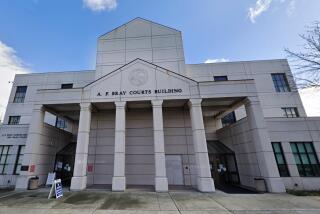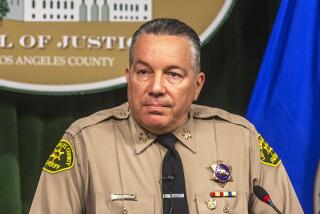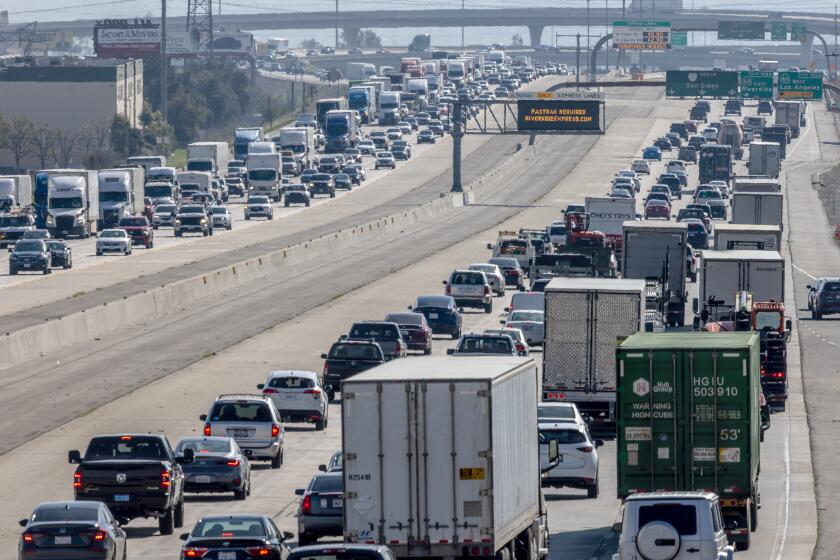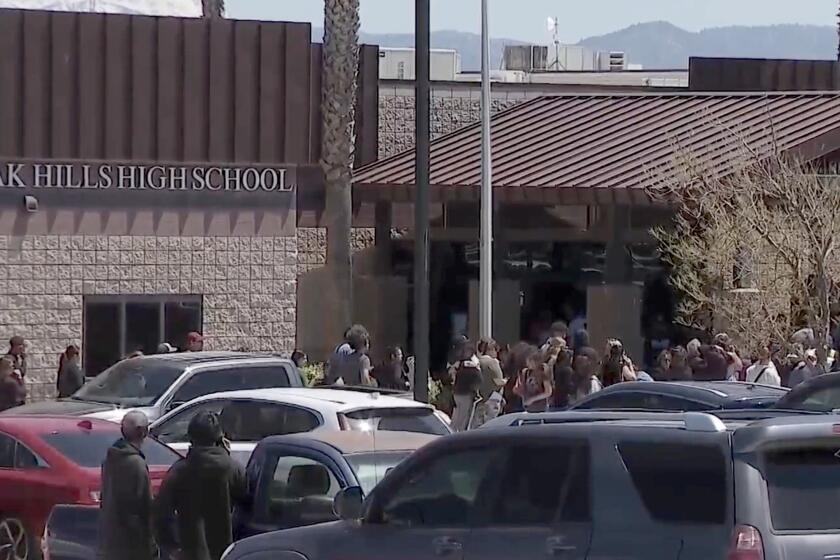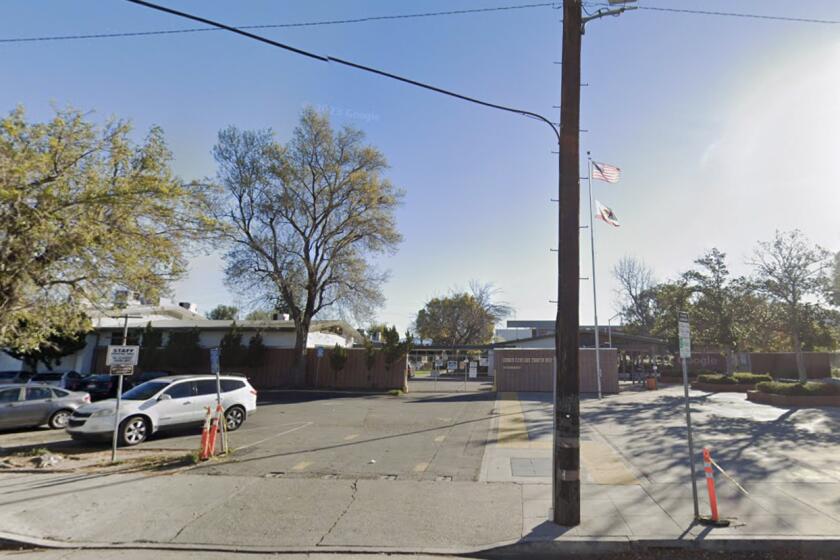Orange County district attorney testifies in Michael Carona trial
Orange County Dist. Atty. Tony Rackauckas’ testimony Friday at the federal corruption trial of former Sheriff Michael S. Carona provided the first detailed glimpse into how his office handled the prosecution of the son of an assistant sheriff charged in a high-profile sexual assault case.
Rackauckas was called to the stand by Carona’s attorneys to talk about what happened behind the scenes after Gregory Haidl got into trouble in 2002 as part of the defense’s efforts to isolate and portray former Assistant Sheriff George Jaramillo as an uncontrollable subordinate corrupted by his own hunger for power and money.
Carona is on trial on charges that he misused the sheriff’s office to enrich himself and others, and provided political favors to Newport Beach millionaire Don Haidl in exchange for laundered campaign contributions, cash payments and other gifts. Carona’s wife and longtime mistress are awaiting a separate trial in February.
Among the allegations against Carona is that he tried to persuade the district attorney to try Greg Haidl as a juvenile after the then-16-year-old and two of his friends were identified as suspects in a videotaped sexual attack at the Newport Beach home of Don Haidl, who at the time was an assistant sheriff.
The three young men were ultimately charged as adults. Their first trial ended in a hung jury, 11 to 1, in favor of acquittal. They were convicted after the case was repackaged for a second trial. Each was sentenced to six years in prison; they have since been released.
Rackauckas was called by the defense, a twist in a political relationship that has been marked in recent years by public enmity. Rackauckas and Carona came to power together in 1998, and their professional alliance appeared amicable until early 2007, when the district attorney’s office convened a grand jury to investigate the death of a Theo Lacy Jail inmate.
That grand jury found that members of the Sheriff’s Department repeatedly hindered the investigation by lying, changing their stories and comparing notes. Carona refused to answer a single question posed by the panel, including whether he was sheriff the day the inmate was killed.
On tapes that have been played during his corruption trial, Carona describes his relationship with Rackauckas as being “in one of those death spirals,” accuses Rackauckas of trying to take him out with the grand jury probe, and vows he would emerge unscathed because he was the “most lethal” politician in Orange County.
Looking back at the events surrounding Greg Haidl’s case, Rackauckas told jurors that Jaramillo called him and requested a meeting after the teenager was identified as a suspect but before he was arrested. The meeting, which lasted about 90 minutes, took place outside Rackauckas’ home in North Tustin. Jaramillo showed up in uniform.
During the conversation, Rackauckas testified, Jaramillo pleaded with him to try the young Haidl and his friends as juveniles, describing Greg Haidl as a “normal” and “innocent-appearing” young boy, while characterizing the victim as a “bad person.”
Jaramillo told Rackauckas that such a charging decision would be acceptable to the media and the public, and that if they were tried as adults, “there would be serious consequences.”
Jaramillo suggested to Rackauckas that one of the bad consequences would be negative coverage by Los Angeles Times columnist Dana Parsons, and that Don Haidl would contribute millions of dollars to a candidate who would run against Rackauckas during the next election.
“He was persistent,” Rackauckas recalled. “He was nervous. . . . I wouldn’t say he was begging. . . . But it was imploring, cajoling and throwing in these things that appeared to be threats along the way.”
Rackauckas said he repeatedly reassured Jaramillo that Greg Haidl would be treated the same as anyone else in the same situation. The next day, Rackauckas said, he met with his then-chief assistant Chuck Middleton to put him in charge of the case and recused himself from making any decisions. Rackauckas said the move was documented in writing.
He said he then called and met with Carona to tell him what had happened with Jaramillo. Rackauckas said he told Carona, as he had Jaramillo, that Greg Haidl would be treated fairly, and suggested that the Sheriff’s Department should not be involved in the case in any way. Carona, he said, agreed with him.
But Jaramillo persisted, bringing up the topic when he saw Rackauckas at various events, even after Rackauckas discussed his conduct with Carona a second time.
Rackauckas said he tried again to reassure Jaramillo that the case would be handled fairly, and informed him that he wouldn’t even be making the decision because Middleton was in charge. Jaramillo said he believed Rackauckas still had the final word, and told him that Greg Haidl needed to be treated as a juvenile.
Rackauckas said the last occasion when Jaramillo appealed to him was in Fullerton, after a meeting of law enforcement officials about budgetary concerns. Jaramillo sidled up to Rackauckas as he walked to his car and told him, “It’s really looking bad.”
Jaramillo told him that Don Haidl would spend $4 million on a candidate to take on Rackauckas. That meeting ended badly, Rackauckas recalled. He said he grew angry and used “less than professional” language.
On cross-examination, Rackauckas acknowledged that although Carona reassured him that the Sheriff’s Department would not have a role in the case, he did not seem to have kept that promise. “It didn’t hold up,” Rackauckas said. “George Jaramillo’s actions were not affected.”
More to Read
Start your day right
Sign up for Essential California for news, features and recommendations from the L.A. Times and beyond in your inbox six days a week.
You may occasionally receive promotional content from the Los Angeles Times.
